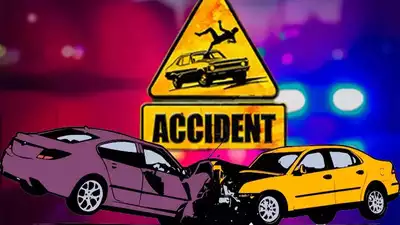As Ghana approaches another election, it is crucial to highlight an often-overlooked aspect of national security: road safety. While the focus is typically on political rallies, voter turnout, and the transparency of the electoral process, the increased movement of people and vehicles during election periods presents a significant road safety challenge that demands urgent attention.
Ghana’s Road Safety Challenges
Despite efforts to improve road safety, Ghana faces significant challenges. The country’s roads are often in poor condition, with potholes, inadequate signage, and insufficient lighting. Vehicle maintenance is another major issue, with many vehicles on the roads being unfit for safe travel. Additionally, driver behavior, including speeding, reckless driving, and driving under the influence, contributes to the high rate of road accidents.
During elections, these challenges are exacerbated by a surge in vehicular movement. Political parties organize rallies, and voters travel across the country to cast their ballots. This increased activity on the roads, coupled with the existing challenges, results in a higher likelihood of road crashes.
The Economic Impact of Road Accidents
Road accidents in Ghana not only cause loss of lives and property but also have a significant economic impact. The World Health Organization estimates that road traffic crashes cost developing nations up to 5% of their GDP each year. In Ghana, the National Road Safety Authority (NRSA) reports that four people perish on the roads every day, and the country loses over $230 million annually due to road accidents, with more than 1,600 fatalities.
The financial burden of road accidents extends to property damage, medical bills, and insurance claims, inflicting economic hardship on individuals and families. As former United States President Dwight D. Eisenhower stated, “While roads may connect us physically, road safety binds us together in the pursuit of economic prosperity.” This statement underscores the importance of road safety in ensuring not only the physical safety of citizens but also their economic well-being.
Understanding Road Safety
Road safety involves the prevention of accidents and the protection of all road users, including pedestrians, cyclists, motorists, and drivers. It encompasses various aspects such as road design, vehicle maintenance, driver behavior, and law enforcement. Effective road safety measures can significantly reduce the risk of accidents and fatalities, ensuring that Ghanaians can safely move from one place to another.
In Ghana, road safety is overseen by the NRSA, which works in conjunction with other agencies like the Motor Traffic and Transport Department (MTTD) of the Ghana Police Service. Despite these efforts, the country’s road safety record remains a concern, especially during high-mobility periods such as elections.
Factors Contributing to Road Accidents During Elections
Several factors contribute to the spike in road accidents during elections in Ghana. One major factor is the increase in traffic during elections. The movement of large numbers of people attending rallies and traveling to vote leads to congested roads, which increases the likelihood of accidents.
Another contributing factor is fatigue and stress. Election campaigns are intense, with long hours on the road for politicians, supporters, and security personnel. Fatigue and stress can impair judgment and reaction times, leading to accidents.
Reckless driving is also a significant issue during elections. In the rush to attend political events or return to their constituencies, drivers may engage in reckless behavior, including speeding and ignoring traffic regulations. Overloading of vehicles is another concern. Supporters often travel in overloaded buses and trucks to rallies, increasing the risk of accidents due to the instability of these vehicles.
What Can Be Done?
Addressing road safety during elections requires a multi-faceted approach. One essential measure is public awareness campaigns. Intensifying road safety campaigns during elections can educate the public on the dangers of reckless driving and the importance of adhering to traffic rules.
Increased law enforcement is another crucial measure. The police should increase their presence on the roads during elections to enforce traffic regulations and deter reckless driving. Improved infrastructure is also vital. The government should invest in improving road conditions, including filling potholes, providing adequate signage, and ensuring proper lighting.
Regular vehicle inspections should be mandatory, especially for those used to transport large groups, to ensure they are roadworthy. Additionally, political parties should be encouraged to coordinate with road safety authorities to ensure that their activities do not compromise road safety.
As Ghana heads to the polls, it is imperative that road safety is prioritized. Political parties must assess how investing in road safety measures will enhance the overall economic progress of the country. After all, safe roads are not just a matter of convenience; they are a matter of life and death.
Source: Elvis Mwintome Aapengnuo


